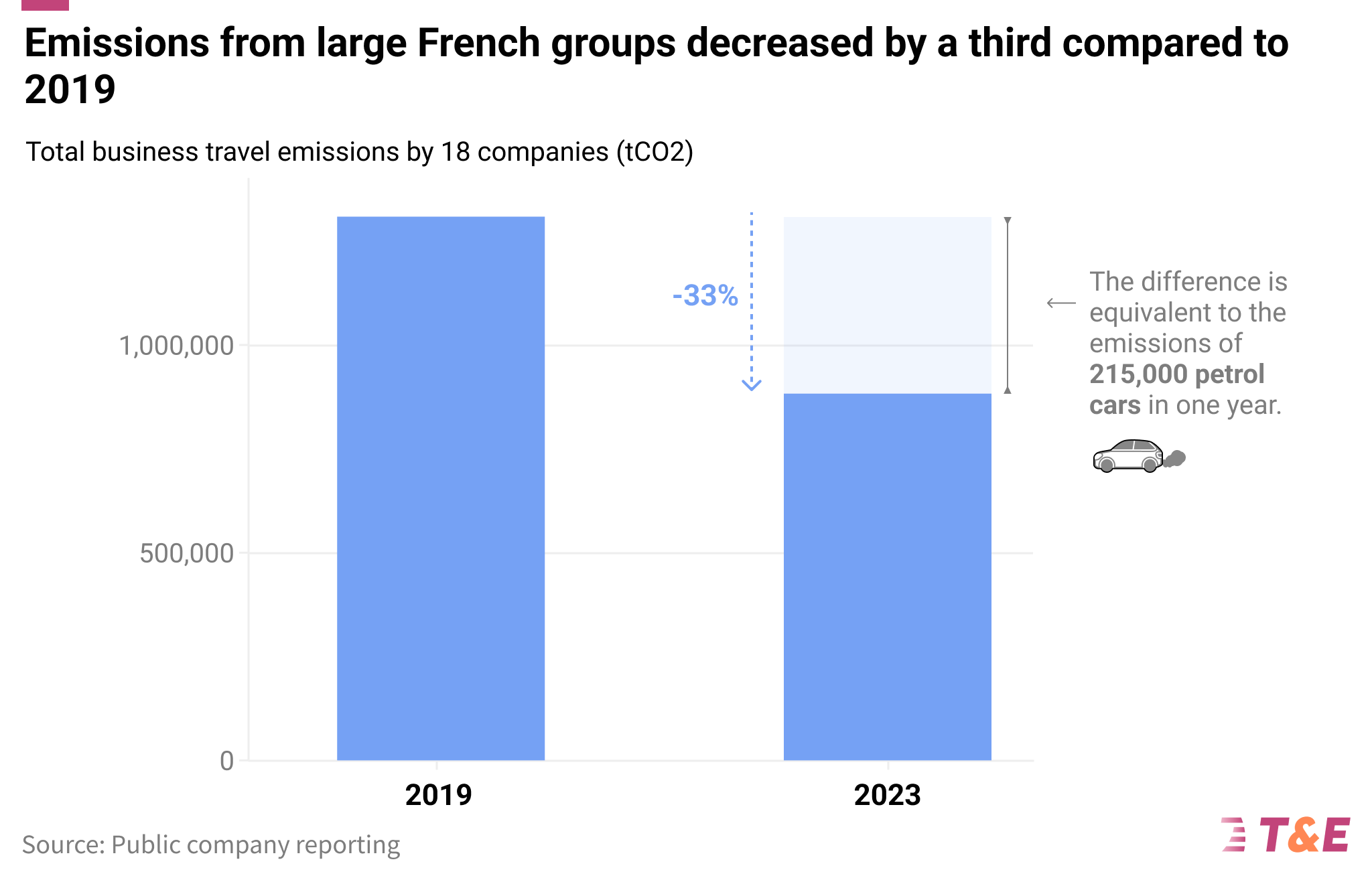In France, the government’s energy sobriety plan calls on businesses to reduce energy use for travel, by taking the train instead of the plane for trips of 4 hours or less. The Netherlands has already enshrined this ambition in law: from July 2024, businesses above 100 employees will have to report to the government on progress made towards the mandated 50% reduction in domestic mobility emissions by 2030, compared to 2016 levels.
Analysing the emissions of the 18 French companies for which we had access to data, we find that their emissions were reduced by a third (-33%) in 2023 compared to 2019, representing 425,000 tons of CO2 saved at a crucial crossroads moment in global climate action. This is equivalent to the emissions from 215,000 petrol cars in one year. It is however a significant rebound from 2022, when emissions from the 18 companies remained at half (-50%) of 2019 levels. If the 16 companies now exceeding this threshold had maintained their business flying in 2023 at 50% of 2019 levels, our analysis shows that this would have saved almost 245,000 additional tonnes of CO2.
 French policymakers should seize the momentum and set mandates to halve business travel emissions. The best way to control aviation emissions in this decade is to halt the growth in demand, and for this, reducing business travel emissions is key. Mandates to halve business travel emissions, and measures for an enabling framework, will accelerate the transformational changes underway towards the mobility of the future: purposeful business travel.
French policymakers should seize the momentum and set mandates to halve business travel emissions. The best way to control aviation emissions in this decade is to halt the growth in demand, and for this, reducing business travel emissions is key. Mandates to halve business travel emissions, and measures for an enabling framework, will accelerate the transformational changes underway towards the mobility of the future: purposeful business travel.